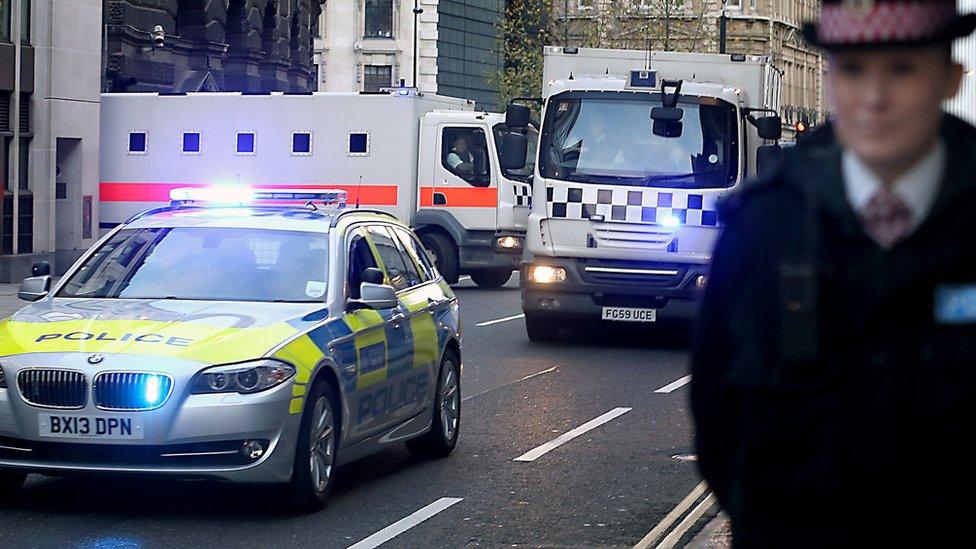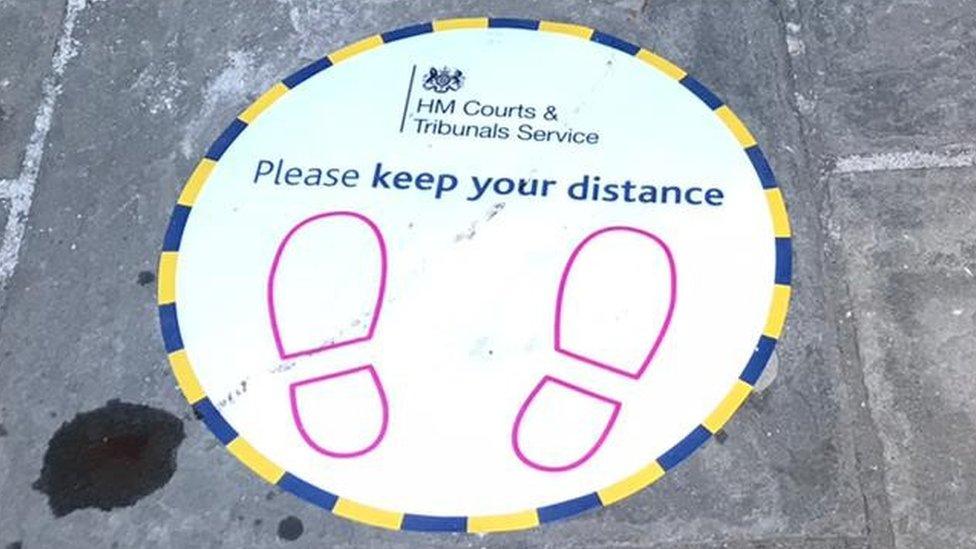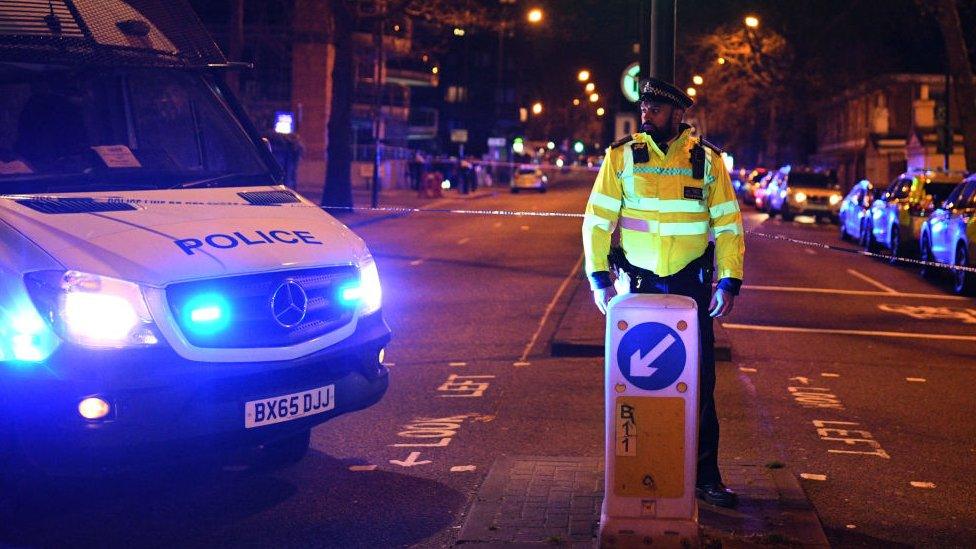Serious criminals to serve more time in jail in justice shake-up
- Published

Sexual and violent offenders will serve at least two-thirds of jail terms, rather than half, as part of changes to the criminal justice system in England and Wales.
An overhaul of sentencing laws has been announced by the Justice Secretary Robert Buckland.
Whole-life orders will also be extended to 18 to 20-year-olds convicted of terrorism causing mass loss of life.
Mr Buckland said it marked the end of "complex and confusing" laws.
Speaking in the House of Commons, Mr Buckland said the measures would "keep offenders who pose a risk to the public off our streets for longer".
He said they would "help restore public confidence that robust sentences are executed in a way that better reflects the gravity of the crimes committed".
Mr Buckland also said protecting the public meant "finding new ways to break cycles of crime, to prevent a revolving door of short custodial sentences that we know offer little rehabilitative value".
More help is being promised for those with mental health issues, addictions and neurodiverse conditions such as autism.
It comes after the criminal justice system ground to a halt during the coronavirus pandemic.
There are steep backlogs and delays for victims and defendants, who are facing trial dates years ahead.
Among the new interventions proposed in a White Paper published on Wednesday are:
the option of a new whole life tariff for killers under the age of 21
whole life orders for adults who murder children - which was a pledge by the Conservatives at last year's general election.
raising the sentencing threshold for serious offences including a "third strike" for burglaries and "two strikes" for knife possession
new powers to halt the automatic release of offenders who pose a terrorist threat or are a danger to the public
reducing the opportunities for over-18s who committed murder as a child to have their minimum jail term reviewed
using GPS tags to track burglars, robbers and thieves when they are released from prison
deploying so-called "sobriety tags" to tackle alcohol-related crime
And offenders sentenced to between four and seven years in prison for serious crimes such as rape and manslaughter will no longer be automatically considered for release halfway through their jail terms.
However, one charity boss warned that "increasing the prison population through longer sentences will only add more pressure to this already stretched system".
Campbell Robb, chief executive of social justice charity Nacro, said the UK needed a system that "gives victims justice, reduces re-offending and creates a safer UK for everyone - senselessly banging people up for longer will not deliver this."
While tougher sentences are among the measures proposed, changes to criminal records to reduce the time offenders have to declare past crimes to employers are also included.
A focus on supporting ex-offenders will see custodial sentences become "spent" after 12 months without reoffending, with convictions of up to four years no longer disclosed after a further four crime-free years.
Sentences of more than four years will not automatically be disclosed to employers after a further seven-year period of rehabilitation is completed.
Labour's shadow justice secretary David Lammy welcomed the changes but sought assurance that new sentencing rules would not be applied "gratuitously".
"It would be wrong to abandon the general presumption in criminal law that when you're younger there is more opportunity for redemption and to turn your life around," he said.


For the past few days, the government has been trailing its White Paper with a series of eye-catching announcements promising tougher sentences for terrorists, violent offenders and motorists who kill.
Many of the plans are likely to command broad public support while measures to relax criminal records disclosure rules have the potential to make a real difference to ex-offenders struggling to find work.
But the timing of the proposals is somewhat odd, as the government grapples with the biggest crisis the criminal justice system has faced in decades.
Problems caused by the coronavirus have meant that a huge backlog of trials across England and Wales has got even bigger.
The sentencing changes, if they go ahead, won't help the tens of thousands of victims, witnesses and defendants caught up in the backlog who now face the prospect of waiting up to two years for their day in court.

The announcement of reforms to sentencing comes after lawyers warned hundreds of thousands of people may have to wait until 2022 for justice, due to delays in the Crown Courts.
Since lockdown began in March, the backlog of Crown Court cases has risen by 6,000 to 43,000.
The Ministry of Justice has pledged an extra 1,600 court staff and £80m towards a range of measures, including more Nightingale courts.
And Mr Buckland has told the BBC he would "use every tool in the book" to clear the case backlog.
Robert Buckland: Government working on court backlog
Speaking on the BBC's Today programme, he said the situation in Magistrates' Courts was "encouraging - with the number of cases being dealt with exceeding the number coming into the system".
And he said the Crown Courts had been "unique" compared to other countries, as it "kept going" throughout the pandemic.
But, he added: "I am bearing down daily on my team in the Courts and Tribunals Service to make sure that they have got the resources they need to make the buildings safe and that judges and listing officers are doing everything they can to get those cases listed so we can achieve swift justice."
Meanwhile detection rates for crimes remain low, having fallen from one-in-seven crime reports leading to a charge in 2015 to around one-in-14 last year.
- Published11 September 2020

- Published6 September 2020

- Published19 July 2020

- Published18 May 2020

- Published23 January 2020
